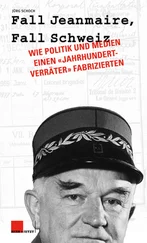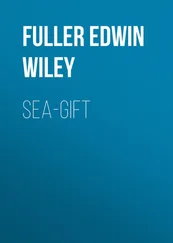By this time Betty was shouting for Oliver to stop, to get out of the pool. When Oliver saw Vik closing, he made a furious kick, perhaps for propulsion, but it caught Vik in the nose and instantly bloodied him. There was a guffaw from the spectators, both swimmers now treading in the pinking water. Vik held his face and saw the blood and then fell upon Oliver, the people around now yelling, Betty screaming, with some of the spectators so riled they either stepped in or jumped in themselves or were pushed in from behind, so that others might see the swimmers fighting, though lifeguards and some swim team members had already jumped in and separated Vik and Oliver.
Fan couldn’t see any more for the bigger people blocking her view, but she did notice Pinah through the scrum, or rather she saw the pinned dark hair of Pinah’s head, suspended a foot below the surface of the water. Her arms flanked wide. Fan jumped in and crouched at the bottom and then shot them both up with a fierce boost of her legs, the plumpish woman much heavier than Fan would have ever thought. Some people on the deck pulled Pinah out and a lifeguard started working on her, Fan watching from the water as she caught her breath at the pool ladder. Luckily the guard got Pinah to cough and hack and start to breathe again quickly, as she’d been under for only a few seconds.
Fan climbed out quickly, panicking for a second, but saw the twins still secured in their bouncers, if now crying. But she didn’t want to pick them up for how soaked she was, her loose sweatpants and T-shirt now clinging to her. Then she saw a toweled, totally spent Oliver being hugged by Betty at the other end of the pool. Betty was fiercely whispering to him, perhaps beseeching him. Whether he was, in fact, listening to her, Fan could not tell. All she knew was that he was staring at her with the deadest eyes, the hollow of the feeling making her instinctively pull the wet fabric from her belly.
Look at the fish.
Our best B-Mor primes. Look at the eyes, luminous and clear. Even on ice, the scales are tiled tight to one another, the points of the fins unbroken, unclipped. Peel forward the gills and see the darkest cherry red, as if there’s blood hotly pushing through its robust, meaty body. The mouth is closed but not clamped in any grimace, saying instead this with a tranquil set of jaw:
We are in good order.
Take us up.
We are ready to be chosen.
And choose them they do. For the rumors are done. Any remnants of the months-long scare about the wholesomeness of our fish are now very few, to be found in only the most phobic quarters, such as those flats and villas where they parse every morsel and sip and likely never enjoyed them anyway. The rest, however, are back at the fish shops all across the Association, queuing as before and with their unyielding Charter scrutiny selecting the ones they deem the brightest, finest, the most pure. They have absolute confidence in their ability to discern and analyze and perhaps well they should, given where they are. They fully believe in themselves, and it doesn’t matter if our fish are of unsurpassed quality, virtually identical in size and composition, and raised in such a way as to make it almost impossible, if not ridiculous, to try to choose among them. And yet they do, studying the displays like they were buying gemstones, and while there are no jostling scrums like at a special clearance or sale in B-Mor, when someone else picks the very one they’ve identified as theirs, the one they’d determined was destined to best nourish and block any rogue unknittings in their cells, they can’t help but get there just a bit earlier the next time.
The result has been a heady rise in the price per kilo of #1 primes, enough, in fact, to get us near the record levels reached during the last big boom, when it seemed no Charter could go for more than a couple of days without a fillet on his plate. All the facility tanks are full again with every stage of them, from specks of fry to the stoutest matureds, the concrete floor of the grow houses tickling the feet with the constant vibrato of the filter pumps running around the clock, the air heavier, moister (though it truly can’t be, given how engineered everything is) with the enriched quality of the reprocessed effluent dripping onto the plant beds. These are growing as dense as ever, so that you can hardly see a coworker weeding directly on the other side, merely hearing the threshing of his gloved hands against the stalks.
And from all this flush being there’s a scent that is at once off-putting and sweetly alluring, too, whiffs of faint rot and newest life columned together and vented through the roof so that the surrounding households of B-Mor must be dreaming of every earthly hunger, of filling themselves with whatever goodness may be at hand. Or are their lights burning later, sometimes into the wee hours of the morning, to feed newly roused desires?
The rest of us have no such wafts carrying across our paths, and yet here we are in the mall-going throng, like everyone else pursuing our day’s own trivial ends but feeling drawn in, too, by the wider pitch and tow. There’s no specialness or majesty in this, there’s nothing different from what has gone on here since the originals set themselves up, we descendants doing what we should be doing, workday or free-day, in the households or in the parks, contracting ourselves for best use and the welfare of the run of times to come. Nobody knows the future. So when we chat on the stoops, say, before the evening chill finally drives us in, of the lady on the next block who attempted to circumvent the usual regulations and produce her own designer line of fashion slippers in her attic using a platoon of counties peddlers as cheap labor, or of the man who was caught sitting at night — totally unclothed — high up in one of the largest trees in the park because he simply wanted, he said, a better view of the stars, we rib one another and chuckle and maybe even argue about the state of our settlement, though with no more of those uneasy skips or pauses, no more throaty, dire tones. We speak and abide one another and then we go in.
For what is there to worry about now? With the relative quiet prevailing, the directorate, or some other body, we can’t be sure, has reversed some of the more disheartening measures of recent times, foremost being restrictions on health clinic visits, which are still limited (as they should be, given the realities of the times) but at a more reasonable frequency, and the qualification for Charter promotion (back up to 2 percent), as well as certain smaller things that indeed make a difference day to day, such as suddenly better pricing for our own excellent produce and fish. There’s even talk of the schools using more of our goods in preparing the children’s bento lunches, rather than random broccoli and potatoes of vaguest origins and from suppliers long unnamed and unknown, though this remains to be seen.
Finally there has been an unprecedented round of new, if modest, public works as well, something they’re promoting as Keep It Up, which has employed at very decent pay small armies of recently retired folks and unemployed younger people, who are now sweeping the streets and sidewalks, clipping shrubberies in the parks, power washing and then painting faded or graffiti-tagged buildings and walls, as well as a hundred other sundry projects meant to bring up the luster of our good place. You see them on their snack breaks, maybe a group of eight or ten of them sitting on the picnic benches near the noodle and kebab stands, all wearing the same asparagus green jumpsuits with lighter green caps (inevitably one of the youths sporting it sideways) and while not talking much as they eat (they wouldn’t know one another), older and younger at least joking or sharing a taste of this or that with enough ease and good feeling to suggest that they’re in this together, communing as they labor, this enduring snapshot of what makes us who we are.
Читать дальше












